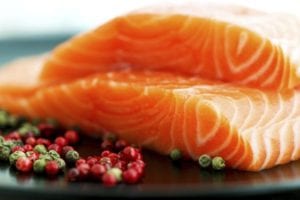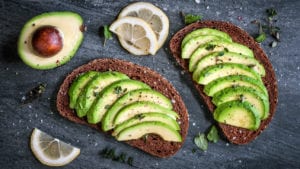Understanding Eating Disorders
I love working at a nutrition store. Not only does it provide me with hands-on experience recommending vitamins and supplements; it’s an opportunity to use my skills to help real-life people with real-life health problems. The other day, a young woman (about 18 or 19) and her mother approached my register for advice. I had to lean in to hear the girl’s question. She asked for something to help with cravings.
Almost immediately, I noticed the way she held her rail-thin arms close to her body, clearly chilled. Her hair was thin and the skin on her face was dry and flaky. Now, there are any number of health conditions that could cause these symptoms, and it may seem presumptuous to automatically assume she was suffering from an eating disorder. But here’s the thing: It takes one to know one. Looking at this sweet, soft-spoken girl, I saw myself when I was her age: tired, cold, sad, and of course hungry.
I could not, in good conscience, confront her about what she was eating (or lack thereof). She didn’t come here for a psycho-analysis, after all, nor was I qualified to perform one. I could, however, make an educated guess as to the cause of her cravings. If she was restricting her calories, her body would be producing excesses of ghrelin (the hunger hormone) in an attempt to maintain homeostasis. Conversely, if she was struggling with binge eating (a common mechanism of the body to compensate for restriction), she could be experiencing adrenal exhaustion, symptoms of which include mental and emotional stress, sugar and salt cravings, weakness and lethargy.
Eating disorders are complex and dynamic to say the least. The causes, symptoms and treatments are as unique as the individuals suffering from them. They involve layer upon layer of physical and psychological triggers and manifestations that require intensive, multifaceted treatment. *I cannot overstate the importance of seeking professional treatment if you or a loved one are battling an eating disorder.* In that moment, though, my job was not to diagnose and cure this girl. My job was simply to find something on our shelves that would make her feel better.
It’s important to understand that no one intentionally becomes anorexic, bulimic, etc. Most often, dieting begins innocently enough, with the intention just to lose a few pounds. It’s what happens during that initial process that has the potential to trigger disordered behaviour. It can be frustrating for loved ones watching the development of an unhealthy relationship with food, and they might will the sufferer to “just eat”. To them, the solution seems that simple. They can’t see the vicious cycle that is set in motion by malnutrition, that the very deficiencies that result from calorie restriction can actually fuel the physical and psychological processes that lead to disordered behaviour. This is why eating disorders are considered a mental illness, and are so difficult for many people to recover from.
The following are just some of the deficiencies a person with an eating disorder might experience:
Amino Acids
Amino acids are building blocks of protein, which facilitate inter-cellular communication. Besides acting as neurotransmitters, meaning they carry messages throughout the nervous system, some amino acids, such as tryptophan, are precursors to brain chemicals like serotonin, a natural anti-depressant. Without the proper amino acids in our diet, our brains can become depleted of these crucial neurotransmitters, which can lead to psychological disorders such as insomnia, anxiety and addictive behaviours like binging or restricting.

Healthy Fats
Healthy fats allow our brain and hormones to function properly. Besides promoting energy and satiety, fat contributes to healthy cell development, and healthy cell walls mean healthy hormone balance, particularly thyroid hormones, which affect metabolism, hunger and blood sugar levels. Furthermore, healthy fat intake is crucial for the absorption of the fat-soluble vitamins A, D, E and K, deficiencies of which may cause muscle wasting, insomnia, poor bone health and other symptoms associated with eating disorders.

Carbohydrates
Carbohydrates are the body’s main source of energy, needed for physical activity, brain function, hormone regulation, and many other important functions. The brain’s “feel-good” chemical, serotonin, is naturally produced with the consumption of carbohydrates. Restriction can lead to mood swings, depression, obsessive behaviour, imbalanced hormones, hair loss, fatigue, insomnia, and low body temperature.

Zinc
Zinc is found in almost every cell in the body. Although deficiency is rare, it can be seen in people with malabsorption syndromes like Crohn’s or celiac disease, the elderly, alcoholics, anorexics, or people on severely restricted diets.
Zinc deficiency is linked to hair loss, acne, infection, mental disorders, poor growth and loss of appetite.

B Vitamins
As a group, B vitamins are necessary for the conversion of glucose into energy, metabolizing fats and protein and supporting the nervous system, skin, liver, muscles, hair, and eyes. Although each one has a unique role, B vitamins work synergistically as catalysts to promote the absorption of other nutrients. A deficiency in one B vitamin can often mean a deficiency in another. B12 deficiency is characterized by mood disturbances, loss of appetite, confusion, disorientation, and muscle weakness, among other things. Niacin (or B3) deficiency, while uncommon, is generally seen in conjunction with poverty and/or malnutrition. It can cause pellagra, an illness characterized by neurological problems such as depression, anxiety and irritability. Niacin can be produced through the conversion of tryptophan. Therefore, a deficiency in tryptophan (from a low-protein or restricted diet), can in turn cause a deficiency in niacin. Milder niacin deficiency symptoms include muscle weakness, loss of appetite, dry skin and gastrointestinal problems.

Breaking the Cycle
Although it may seem like an impossible situation in which to find yourself or a loved one, know that there is hope. Many forms of help exist for the treatment of eating disorders, from cognitive behavioural therapy to nutritional counselling to support groups. I can tell you from personal experience that it is possible to recover from an eating disorder. And that eating disorders can be prevented through adequate nutrition, supplementation and of course self-love during times of weight loss. Getting in shape should never mean sacrificing the overall health of your body, mind and spirit.
As for that girl in the store? I got her a good hormone balancer, a B complex, amino acids and some coconut oil. Coconut oil always makes me feel better.



